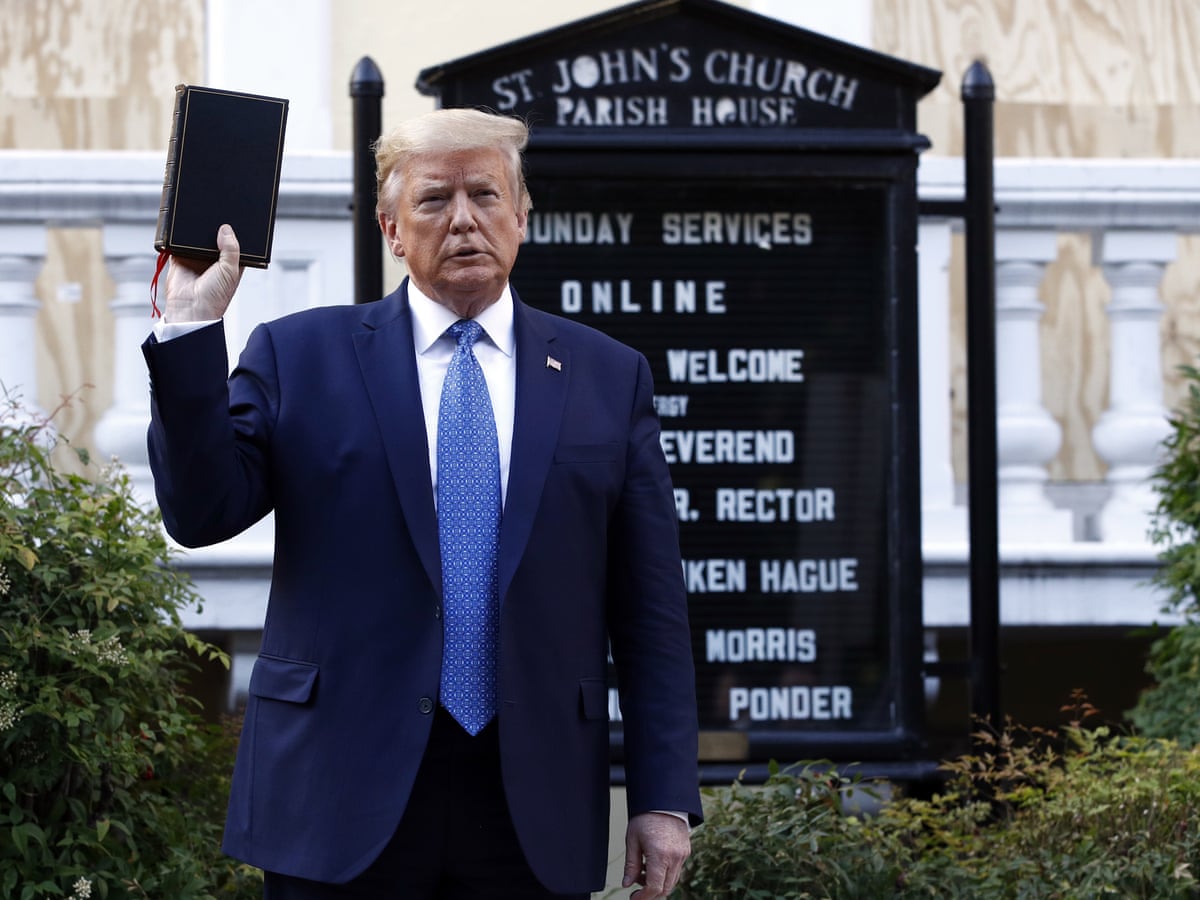/cloudfront-us-east-1.images.arcpublishing.com/tronc/TIWJ65XLTVHXHN3BO3VUMUV2P4.jpg)
We rang it in with high hopes and lofty resolutions, then dropped into a downward spiral of death and despair with people trading punches to get the last roll of toilet paper.
Beyond the bewildering pandemic, we’re dealing with unemployment at its highest level since the Great Depression, a divisive presidential election, Donald Trump and his corrupt, autocratic administration; the repeated deaths of unarmed black people at the hands of police and a nationwide reckoning with systemic racism and systemic inequality.

Overall, the U.S. has lost more than 130,000 people to COVID-19, a quarter of the world’s death toll.
“It feels like a confluence all at once of 1918, 1929 and 1968,” historian Thurston Clarke told The News, referring to the years of the deadly “Spanish Flu” pandemic, the stock market crash that led to the Great Depression and the social unrest following the assassinations of the Rev. Martin Luther King Jr. and Robert F. Kennedy.
“We had the terrible assassinations and the war in Vietnam in 1968. But now we’ve got a pandemic that’s already killed two times as many Americans as lost their lives in Vietnam. And we’ve got huge job losses and economic problems we didn’t have then,” he said.

Visitors to the Department of Labor are turned away at the door by personnel due to closures over coronavirus concerns, Wednesday, March 18, in New York. (John Minchillo/AP)
I think all of us who study history are feeling whipsawed because there are so many parallels to the past, but it’s so confusing because one day it feels like 1861, the next 1918, then suddenly 1970,” said Ted Widmer, author of the recent book “Lincoln on the Verge” and a professor at CUNY’s Macaulay Honors College.
“So many things are happening at the same time,” he said. “We have so many extremes feeding each other, driving each other forward, while everyone is simultaneously fearful of the global pandemic.”
During the start of the Civil War in 1861, the breaking point was deep division over the enslavement of black people. Today, the flash points are police brutality and systemic racism, enduring echoes of that shameful institution.
When the graphic video of Ahmaud Arbery’s Feb. 23 killing at the hands of a white ex-cop and his son published online in early May, it touched off a simmering outrage that exploded into the streets following the May 25 death of George Floyd in the custody of four Minneapolis police officers.

Former Minneapolis Police Officer Derek Chauvin during the arrest of George Floyd.
Graphic video of Floyd’s death showed white ex-officer Derek Chauvin kneeling on Floyd’s neck for 8 minutes and 46 seconds in sickening silence as the unarmed black man repeatedly cried, “I can’t breathe” before losing consciousness and never regaining it
.
Three days after Floyd’s death, officials released the harrowing 911 call made by Breonna Taylor’s boyfriend after the 26-year-old EMT was shot at least eight times by police inside her Louisville apartment during a botched drug raid March 13.
On June 12, a white police officer in Atlanta pumped two bullets into the back of Rayshard Brooks in the parking lot of an Atlanta Wendy’s even though he knew the black man was running away with only a spent Taser in his hands, the prosecutor who charged the cop with felony murder said.
But even amid the stirring calls for social justice, many insist America has already accounted for the sins of its past, and its ongoing failures are few.
Widmer said another defining characteristic that sets 2020 apart from past eras has to do with America’s standing in the world.
“It’s really shocking. The respect other countries hold for us is way, way down by any measure," he said.
“It feels like we’ve lost sight of what Lincoln called our ‘better angels’ — our generosity to people other than ourselves and our willingness to lead in the solutions of global problems,” he said.
“Right now it feels like we’re reeling. We’re far from leading in response to the pandemic. We’re being mocked and pitied. The U.S. is seemingly moving through this as though we are alone. We’re not hearing with any regularity that we’re working with our allies to share expertise and resources,” she said. “We’re so used to hearing we’re the best county in the world. But the idea that Europe is barring Americans as it reopens is a very powerful rejection of that myth.”
She said the U.S. has lost “a lot of steam” in the last six months in terms of lost production, disrupted education, forfeited productivity and breakdowns in our supply chains. “I think we’re going to be a very tired country on New Year’s Eve. Really, really tired.”
























